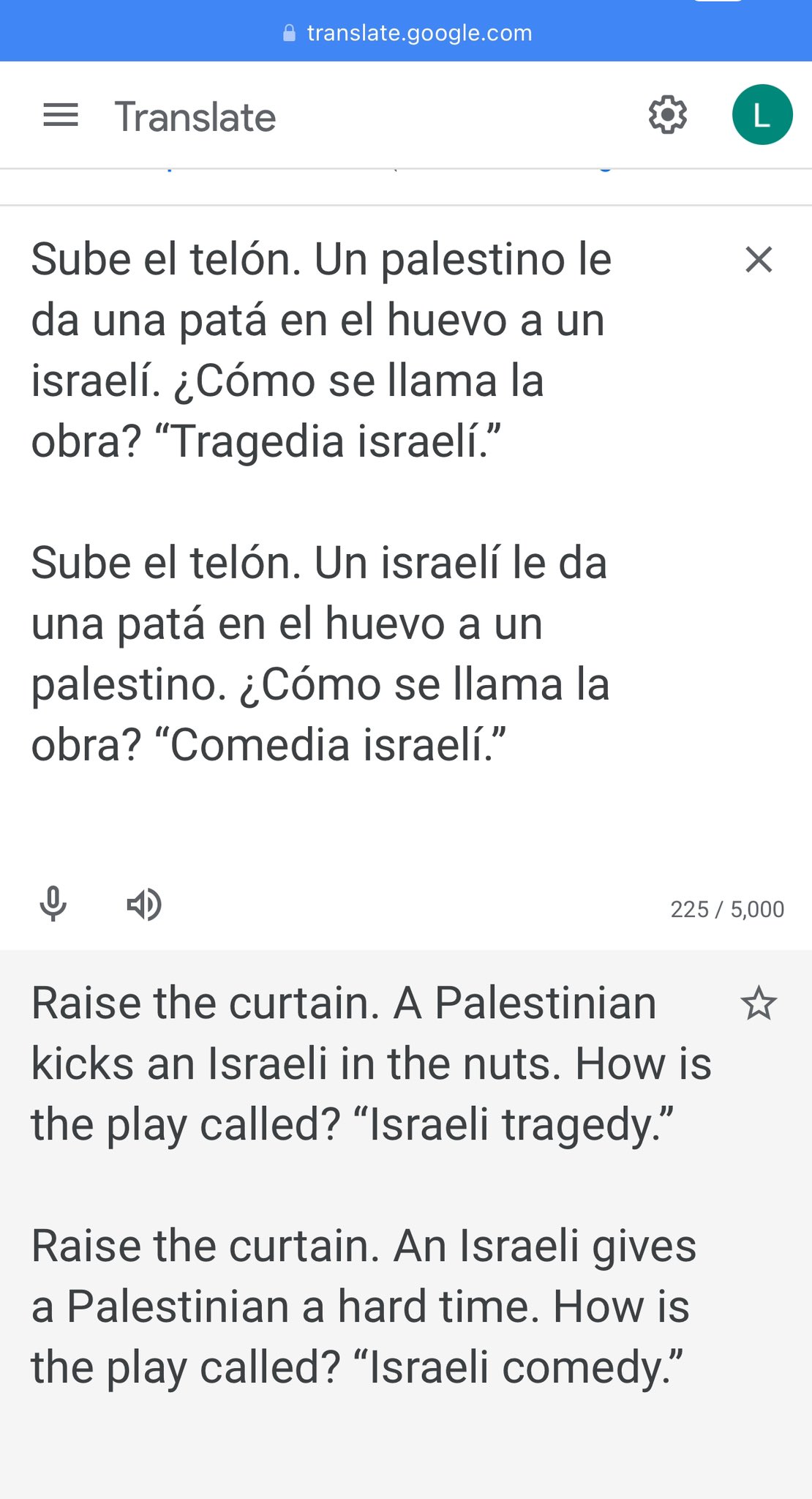Yeah that's weird. There's no change in the wording, aside from who is kicking who, so it's not like it should be switching up the translation.
askchapo
Ask Hexbear is the place to ask and answer ~~thought-provoking~~ questions.
Rules:
-
Posts must ask a question.
-
If the question asked is serious, answer seriously.
-
Questions where you want to learn more about socialism are allowed, but questions in bad faith are not.
-
Try [email protected] if you're having questions about regarding moderation, site policy, the site itself, development, volunteering or the mod team.
Machine translators make heavy use of machine learning/LLMs on the back end. This is necessary to an extent since the same phrase can have different meanings depending on context, but it also means that the usual biases from machine learning can crop up easily. The most famous example is that if you translated something like "I waved to the doctor" and "I waved to the nurse" to Spanish, it used to give the masculine form/pronouns for the first sentence and the feminine form/pronouns for the second sentence, even though there is no indication of gender in the English version. So there's a good chance that the context of who is kicking who can cause Google Translate to interpret the same phrase differently due to this bias.
It might also be trying to translate on a phrase or sentence level and applying statistics. The two sentences might occur in more contexts (in their statistical model) where they one gets translated literally and the other idiomatically.
that's what's meant by bias in this context. those statistical differences arise due to bias.
👀
https://web.archive.org/web/20240112225209/https://blog.duolingo.com/duolingo-max/
ai enshittification + rampant techbro fascism??! what is even going on? what is happening on twitter? who do i hunt?
It's probably an LLM unintentionally absorbing bias from its source material.
That's weird, when I do it one paragraph at a time or translates "kick in the balls" correctly
try writing patada, patá seems like an abbreviated colloquialism, also en el huevo, is in one nut, it should be en los huevos
kicking an israeli with surgical precision in the left nut and the left nut only
Also it should be “the curtain rises”. “Sube” is the simple present third person conjugation of subir, as well as the imperative second person command, so it could mean either, but the translator chose the wrong one based on context.
Me estoy convirtiendo en El Bromas 
99% of the time when one of these black box algorithms produces a weird, inconsistent result, it's because it's badly designed, not because of any single conscious decision someone made to obscure a particular idea. Google Translate was an early application of LLMs, and to bust one's balls is a well known expression that you could translate as "give one a hard time."
